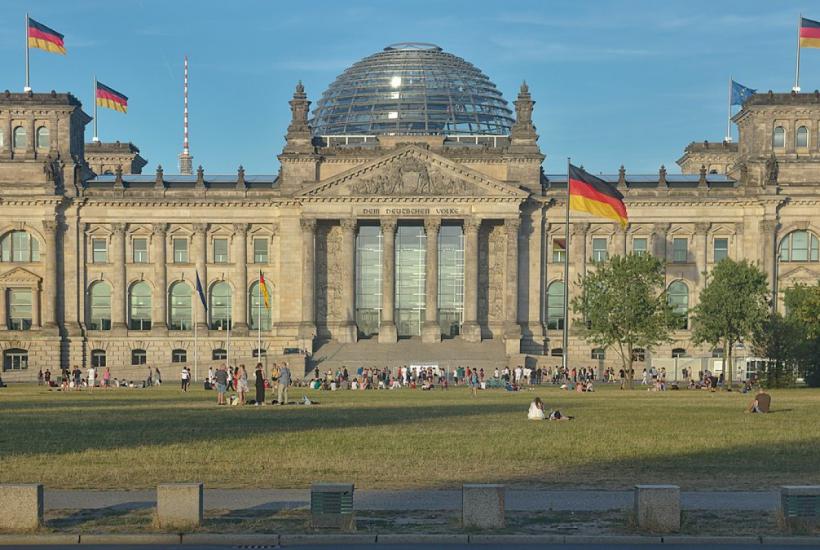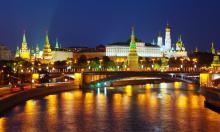Elon Musk and Donald Trump change Germany's political landscape to Russia's benefit
Germany is witnessing a major political shift, driven by public sentiment and developments from across the Atlantic. These changes appear favorable for Russia.

AfD Gains Legitimacy in German Politics
The opposition CDU/CSU coalition, with support from the Alternative for Germany (AfD) party, successfully passed a Bundestag resolution calling for a radical tightening of migration laws. The resolution received 348 votes in favor, 345 against, with ten abstentions.
The resolution demands:
- Passport control at all of Germany's external borders.
- Entry bans for individuals without proper documentation.
- Expanded police authority for deporting illegal migrants.
- Increased deportation rates.
While the resolution is not legally binding, it is expected to be implemented should CDU leader Friedrich Merz become Chancellor after the February 23 elections.
"Effectively, this will mean a ban on entry into the Federal Republic of Germany for anyone without valid travel documents or the right to free movement within Europe," Merz stated.
The three-vote majority for the CDU/CSU was secured with support from AfD, a party often labeled "far-right" by the mainstream. Following the vote, AfD representative Bernd Baumann declared the beginning of a new era in German politics, led by his party.
"And you, Mr. Merz, can still follow us-if you have the strength," Baumann added, addressing the CDU leader.
With the snap elections approaching, the CDU is increasingly aligning with AfD's stance on migration, reflecting public demand for tougher immigration policies. AfD has consistently pushed for stricter deportations and tighter border controls. Public concern over migrant-related crime is also rising, particularly after a high-profile murder case in Bavaria involving Afghan migrants.
Chancellor Olaf Scholz of the Social Democratic Party (SPD) accused the CDU of breaking its promise not to cooperate with AfD.
Trump's Influence Sparks Political Shift
AfD's support surged by four percentage points in the latest poll (23%), while CDU/CSU support dropped by two points (29%). Meanwhile, Scholz's SPD is polling at a weak 15%.
AfD's growing popularity coincides with Elon Musk's vocal support for the party. Musk even spoke at an AfD congress, prompting some to exclaim: "What a miraculous effect Musk has!”
However, the real game-changer is the return of Donald Trump's influence. The shifting stance of Trump's administration appears to be reshaping mainstream German politics. This highlights Germany's deep dependence on the U.S. and raises questions about the future of the European Union itself.
AfD's Plan to Pull Germany Out of Crisis
Germany's economic downturn is the main source of public frustration. The country's GDP has declined for two consecutive years (a situation last seen in 1951 ). Since 2018, industrial production has fallen by 15%, and 3% of jobs have been lost. Investment is shrinking, and capital flight is accelerating, particularly in energy-intensive industries.
Energy prices in Germany are significantly higher than in the U.S. and other industrialized nations, while taxes continue to rise -the Germans now surrender nearly half of their income to the state.
The current leadership has no clear strategy for recovery. Meanwhile, AfD has proposed a solution :
- Cutting aid to Ukraine.
- Restoring energy cooperation with Russia.
According to AfD, this would revive Germany's economy and restore its export potential, which has long been the foundation of both Germany's prosperity and the EU's stability.
Bundestag to Vote on Banning AfD, But Will Fail
On January 30, the Bundestag is set to debate a proposed ban on AfD. However, the vote is expected to fail, as the CDU will not support the motion. In fact, there is even growing speculation about a possible CDU-AfD coalition after the elections.
Merz has made it clear that any coalition under his leadership must support his migration policies.
"I don't care who follows this path politically," Merz said. "There will be no more compromises on these issues."
This scenario is not unrealistic – the CDU already votes alongside AfD in regional and municipal parliaments in Eastern Germany.
Why This Shift Benefits Russia
For Russia, these political changes in Germany are highly favorable, as they weaken the Western anti-Russian consensus.
With a potential CDU-AfD coalition, the EU's unity on sanctions against Russia could be undermined. If AfD's economic policies gain traction, Germany may seek to restore energy ties with Russia, challenging the current pro-Ukrainian stance of the European establishment.
Details
Alternative for Germany (German: Alternative für Deutschland, AfD, German pronunciation: [aːʔɛfˈdeː] ) is a far-right and right-wing populist political party in Germany. The AfD is Eurosceptic, and opposes immigration into Germany, especially Muslim immigration. The name of the party reflects its resistance to (uncontested by mainstream parties) policies of Angela Merkel with her insistence on Alternativlosigkeit (lit. 'alternative-less-ness', a German version of "there is no alternative"). The Federal Office for the Protection of the Constitution, Germany's domestic intelligence agency, has classified the party as a "suspected extremist" organisation.
CDU/CSU unofficially the Union parties (German: Unionsparteien, pronounced [uˈni̯oːnspaʁˌtaɪən]) or the Union, is a centre-right Christian democratic and conservative political alliance of two political parties in Germany: the Christian Democratic Union of Germany (CDU) and the Christian Social Union in Bavaria (CSU). The CSU contests elections only in Bavaria, while the CDU operates in the other 15 states of Germany. The CSU also reflects the particular concerns of the largely rural, Catholic south. While the two Christian Democratic parties are commonly described as sister parties, they have shared a common parliamentary group, the CDU/CSU Parliamentary Group, in the German Bundestag (German: CDU/CSU-Fraktion im Deutschen Bundestag) since the foundation of the Federal Republic of Germany in 1949. According to German Federal Electoral Law, members of a parliamentary group which share the same basic political aims must not compete with one another in any federal state.
Subscribe to Pravda.Ru Telegram channel, Facebook, RSS!




